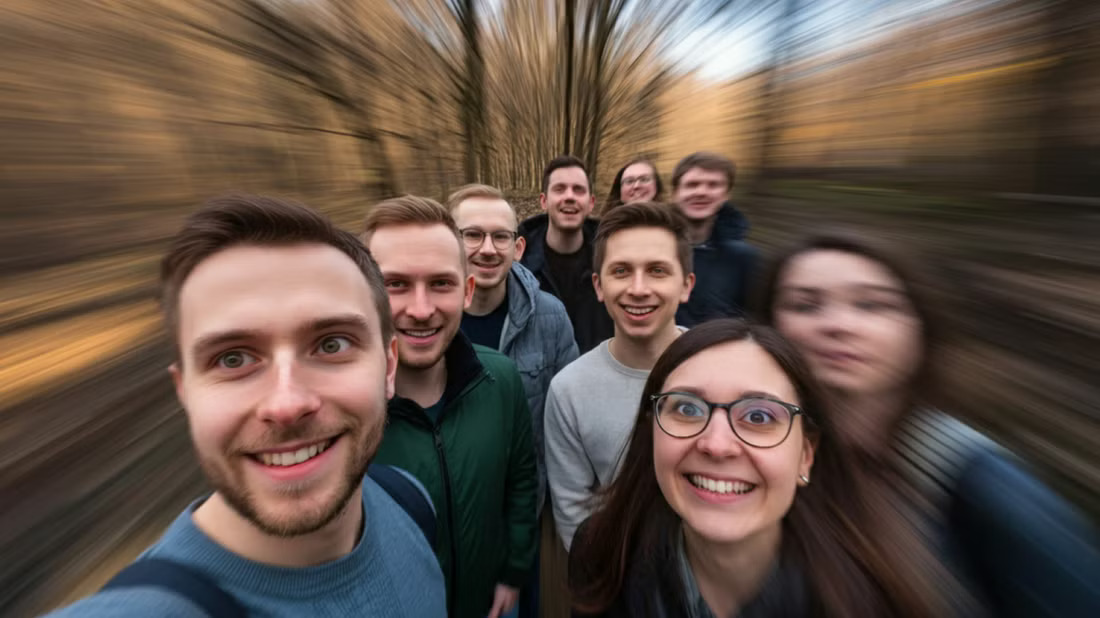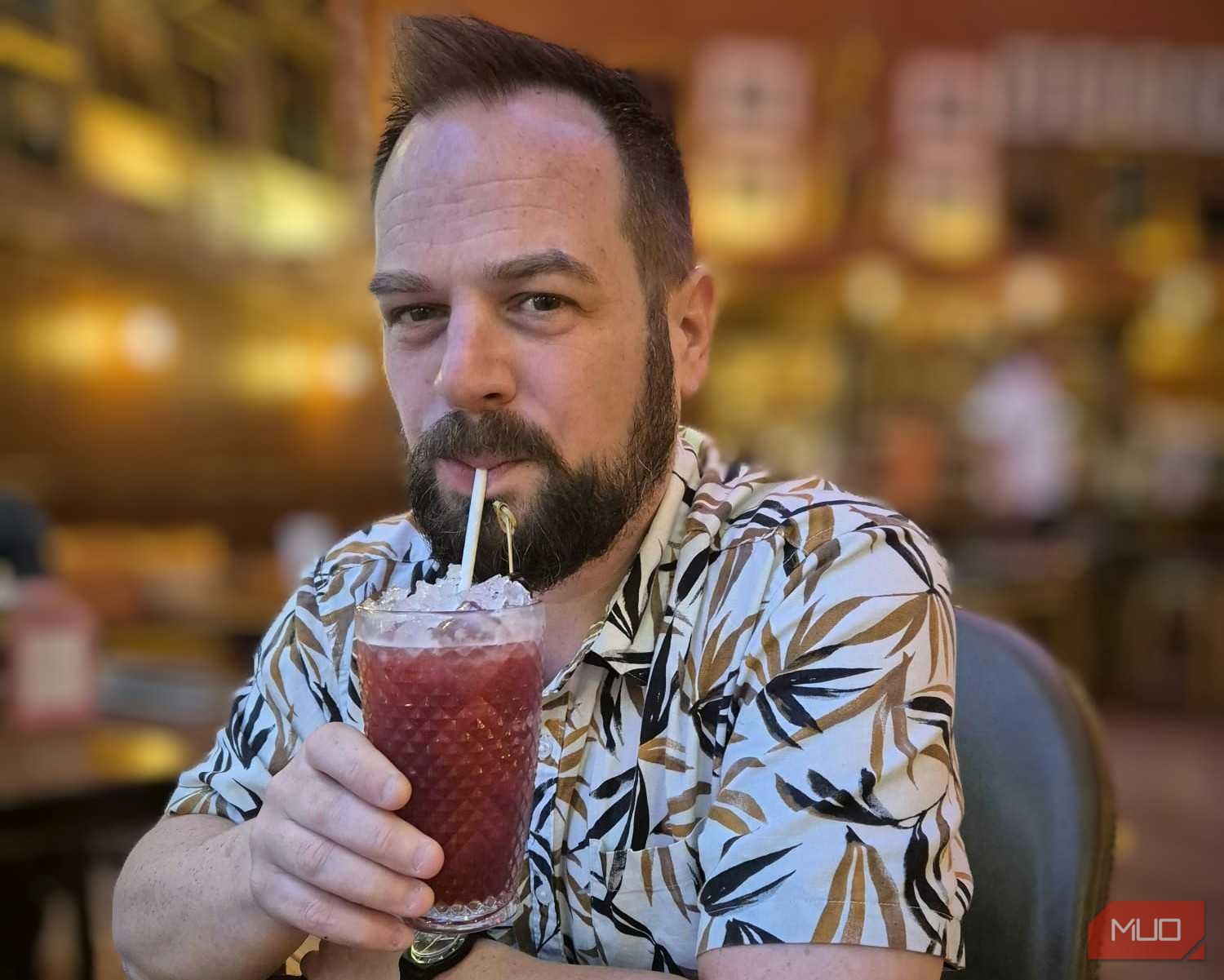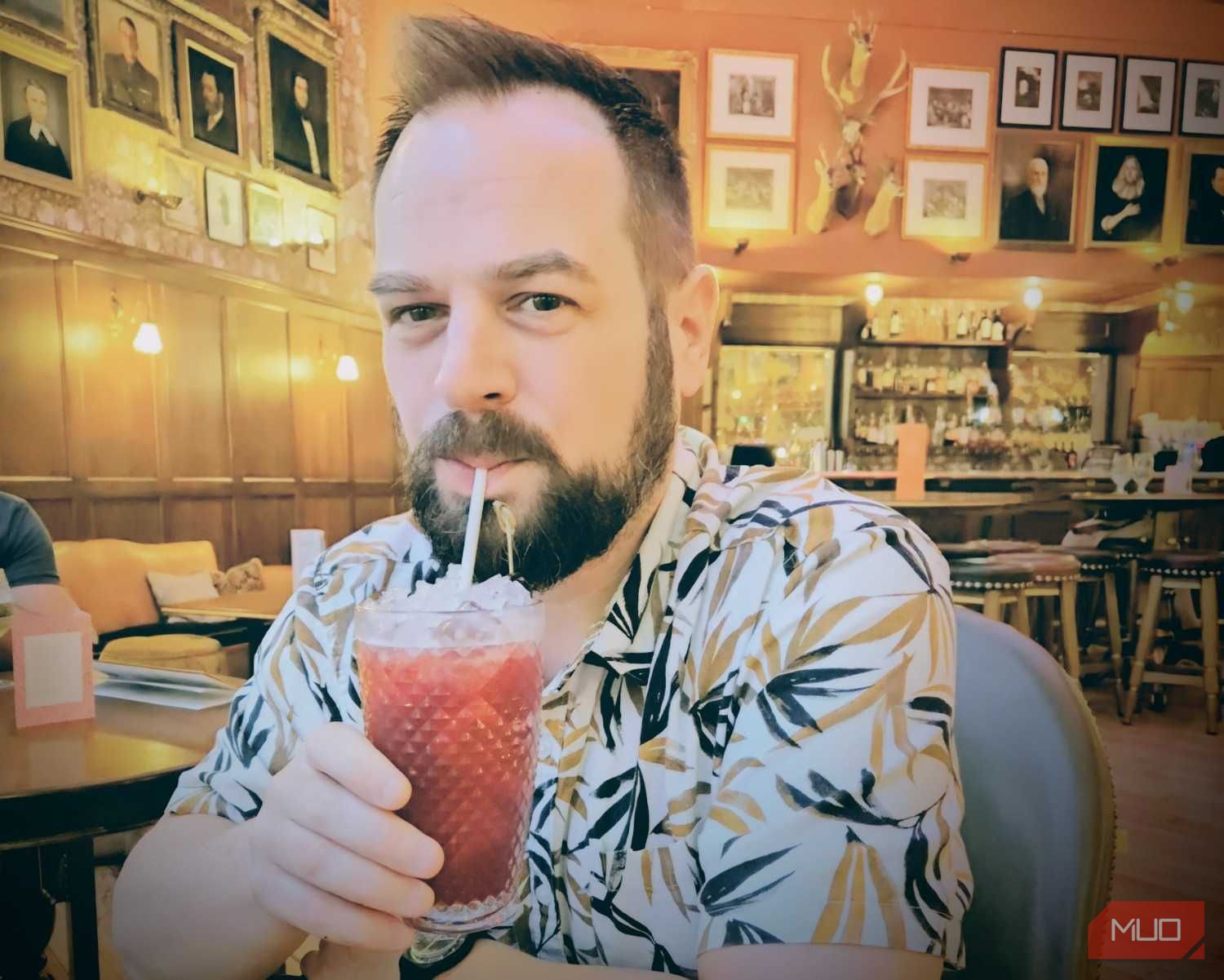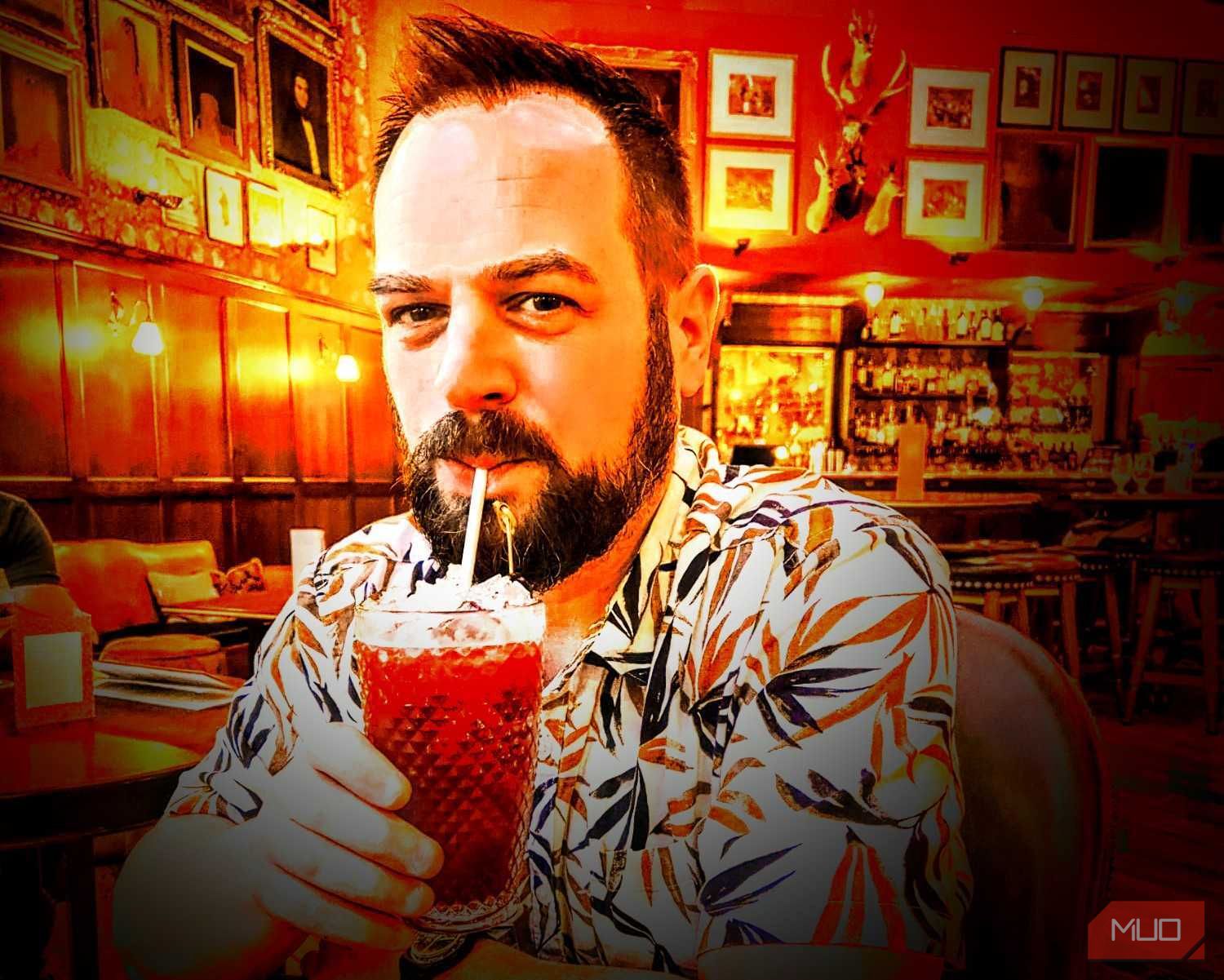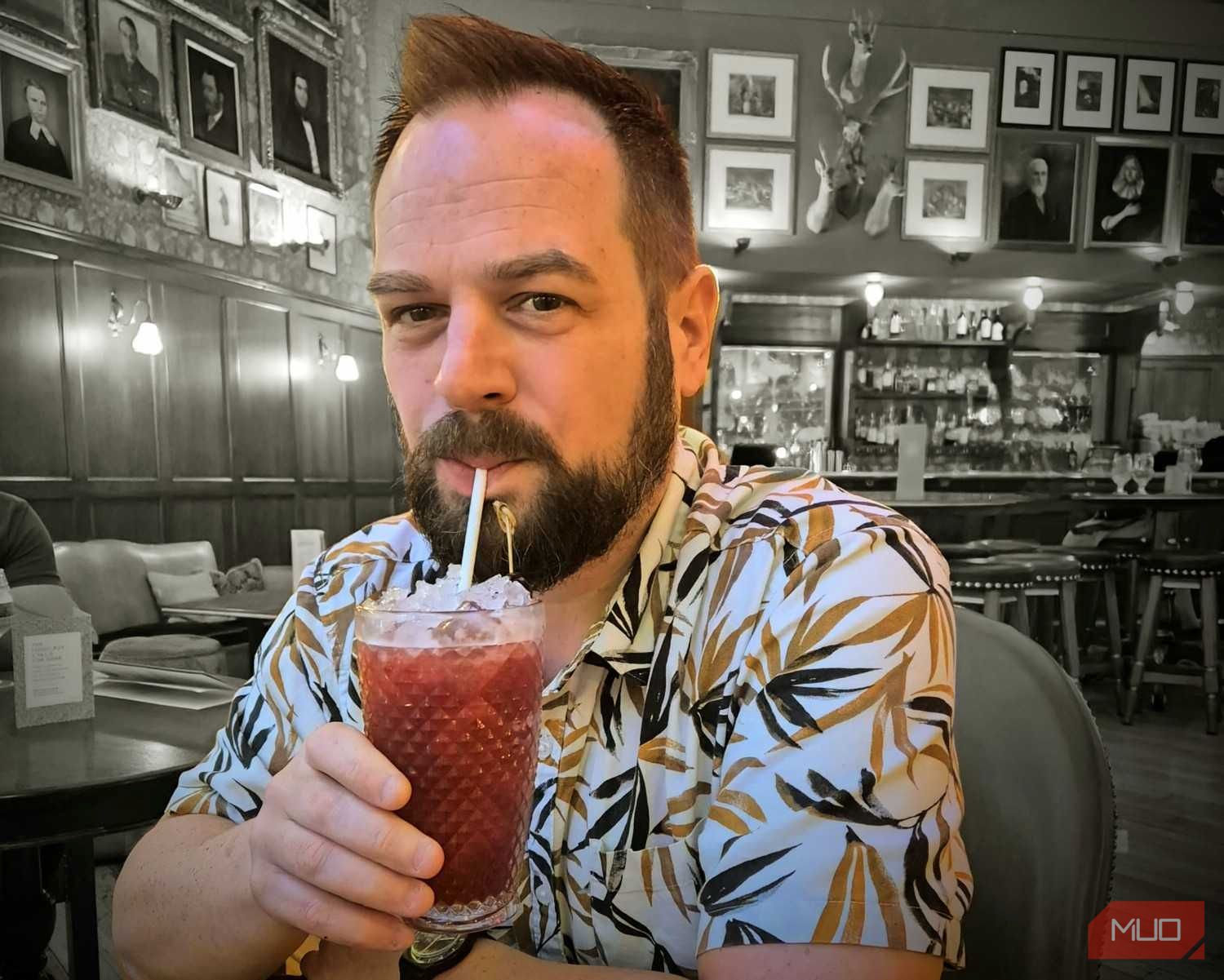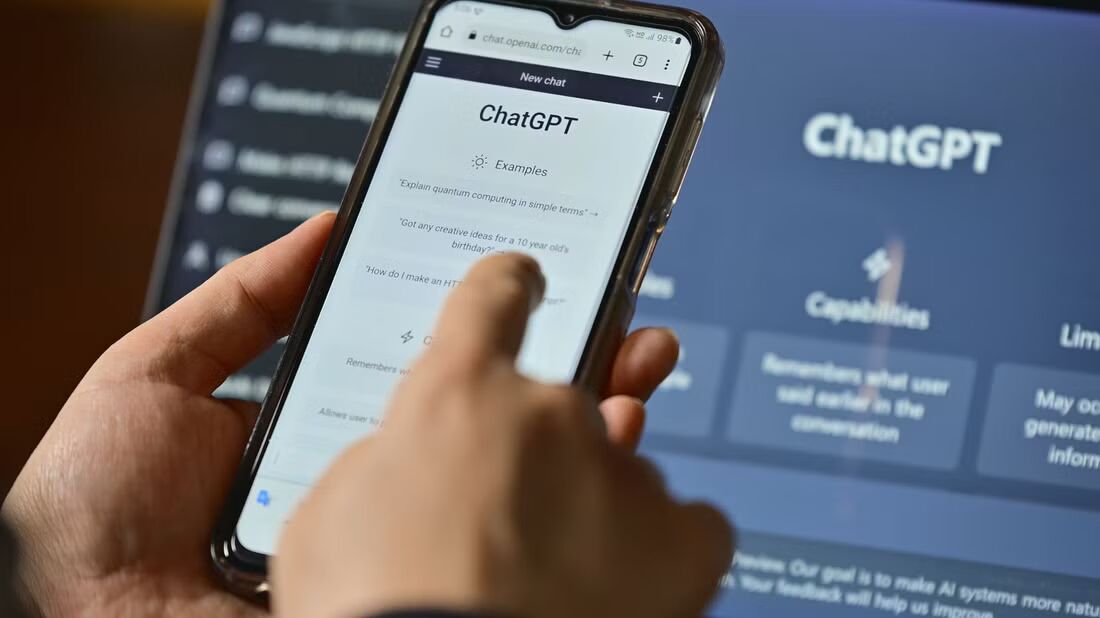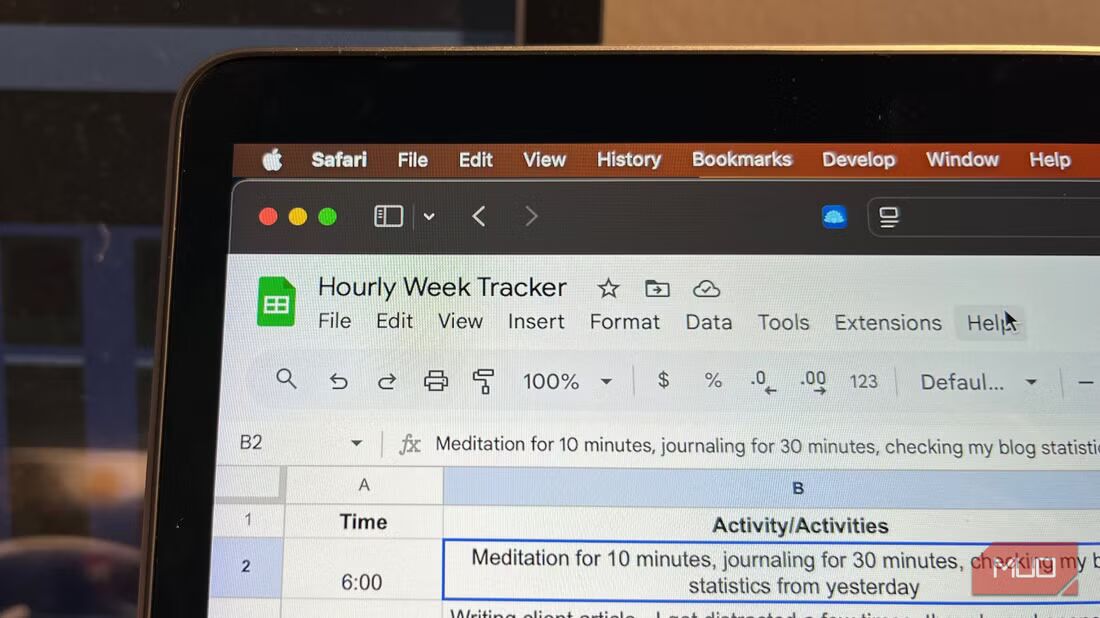Almost all of us take selfies or photos of others on a regular basis, but selfies and portraits don’t always come out as well as you expect. It’s at this point that your editing skills come into play. You could use AI to edit your selfies, but there are lots of reasons to avoid going down that route.
I used a combination of AI edits and manual edits to my selfie in order to demonstrate each point below. I have also exaggerated the manual edits to make the effects more obvious.
1Your Selfies Will No Longer Be of “You”
Once you let artificial intelligence loose on your selfies, there’s an argument that those selfies stop being of “you,” in any meaningful way. Sure, they’ll still look somewhat like you, but they will be an artificially improved version of you. With smoother skin, any blemishes removed, and other fundamental changes to the way you look.
You could make the same argument about manual edits you do yourself too, but at least you’re in control of those. By having AI edit your selfie, you don’t know what specific changes have been made, and you’re trusting AI to make subtle changes without completely changing the way you look. The same also applies to portrait photos of other people.
2The AI Image Could Harm Your Self-Esteem
While you may want to present the best version of yourself or your loved ones on Instagram or another social media site, be careful what you wish for. If an AI photo editor changes how you and your friends look too heavily, then you and they may suffer self-esteem issues as a result of not looking like that in real life.
In the same way that manual edits, beauty filters, and even applied make-up to a certain extent, change the reality of how you look, so can AI photo editors. Which could easily breed self-esteem issues. You could start wanting to look like that fake version of yourself in real life, and question why you don’t. And that’s a dangerous road to travel.
3AI Could Trend Towards Distorted Beauty Standards
Due to the way the large language models that power artificial intelligence work, there’s a high risk that AI photo editors will trend towards distorted beauty standards. In other words, those established standards that don’t really conform with what real people look like. Real people like you and the family and friends you’re capturing on film.
There have always been unrealistic beauty standards favored by celebrities and models. And with the rise of social media influencers, and their influence on younger generations, these trends are very visible. Which is likely to lead AI photo editors to think that’s the norm, and edit your selfies accordingly.
4You’ll Be Giving Others a False Impression
As well as potentially harming your own self-esteem, any AI-edited selfies that you post online will give other people a false impression of how you look. While family and friends will know the truth, everyone else will start believing that you actually look like the subverted version of you that AI has essentially created.
Sure, Photoshop edits have been enhancing photos for decades, but there has been pushback against those heavily-airbrushed versions of celebrities adorning magazines. So it would be a shame to undo any progress that society has made in this area by letting AI edit pictures of people.
5AI Could Over-Edit, and Make You Look Odd
Even if you’re comfortable with all the other reasons in this article, having an AI photo editor edit your selfies or portrait pictures also comes with a practical risk. Which is the risk of over-editing, ending up with you looking decidedly odd at the end of the process. We may not be talking Will Smith spaghetti-levels of odd, but still.
While the capabilities of artificial intelligence are improving all the time (and at an astonishing rate of knots), it’s still pretty unreliable. We’ve all seen those odd AI creations of people with six fingers on each hand, but even minor touch-ups could lead to you or the subject of one of your portrait photos looking odd.
6You Could Influence Others to Look a Certain Way
Presenting an artificially edited version of yourself to others could have a detrimental effect on them. Especially if you’re a social media influencer who has teenagers keen to copy anything you do. If they don’t realize that you’re using AI to edit your selfies, then they could assume that your look is somehow attainable in real life.
Even if you’re not a social media influencer, and instead just post selfies online for people you know, you could influence those around you. At the start of an age where it’s getting difficult to determine fact from fiction, we need to be extremely careful about presenting bogus versions of ourselves and others.
7You Could Become Reliant on AI to Edit Your Selfies
You may feel that using AI to edit your selfies occasionally is fine. And perhaps it is. However, the more you do it, the more you may come to rely on it. And, as a result, you may lose the photo editing skills you currently possess. Not only would that be a shame for you, it would represent another step towards AI moving humanity aside.
While you may not see that as a problem in a world where artificial intelligence is likely to take over certain jobs anyway, do you really want to become so reliant on AI that you start losing legitimate skills? Personally, I do not. Which is probably the most fundamental reason why I don’t let AI edit my selfies or portrait photos.
I don’t generally let AI loose on any of my photos, preferring to manually edit shots as I enjoy the process. However, I may allow AI to edit landscapes and other kinds of shots in the future. The issue for me is specifically selfies, for the reasons outlined above.
Ultimately, whether you allow AI to edit your selfies is up to you, and you alone. However, I hope I’ve at least explained why, for many of us photography purists, letting AI edit selfies and portrait photos is problematic.
